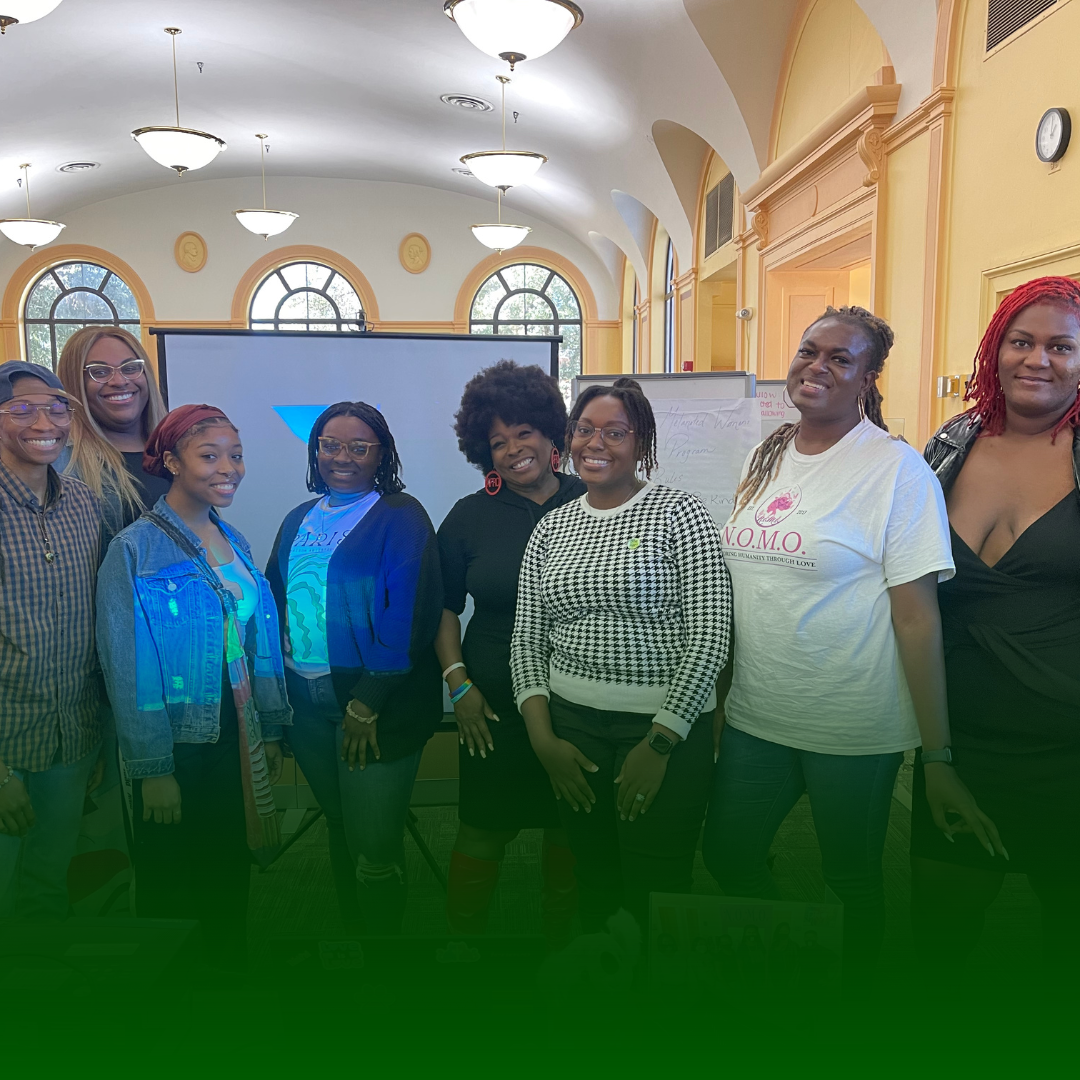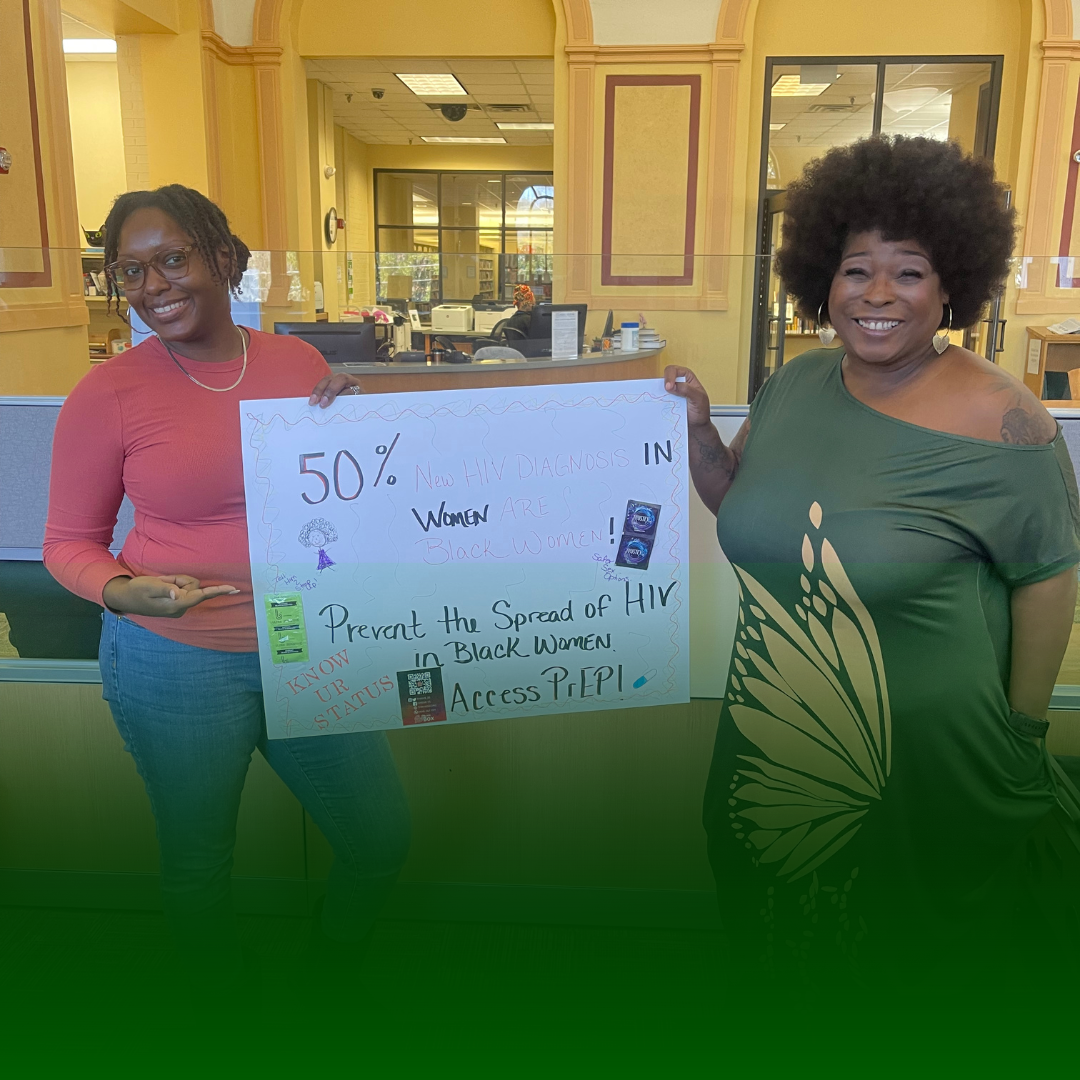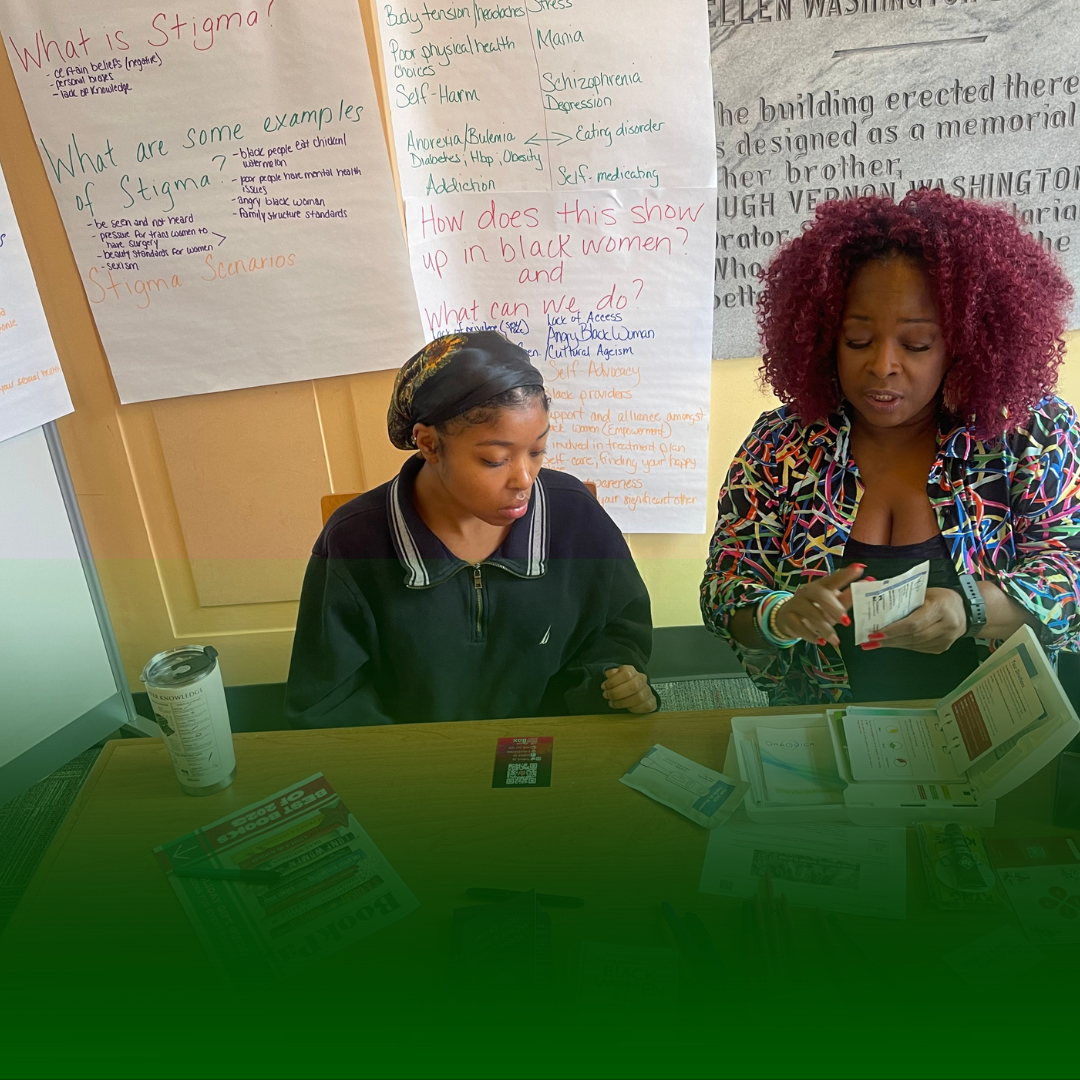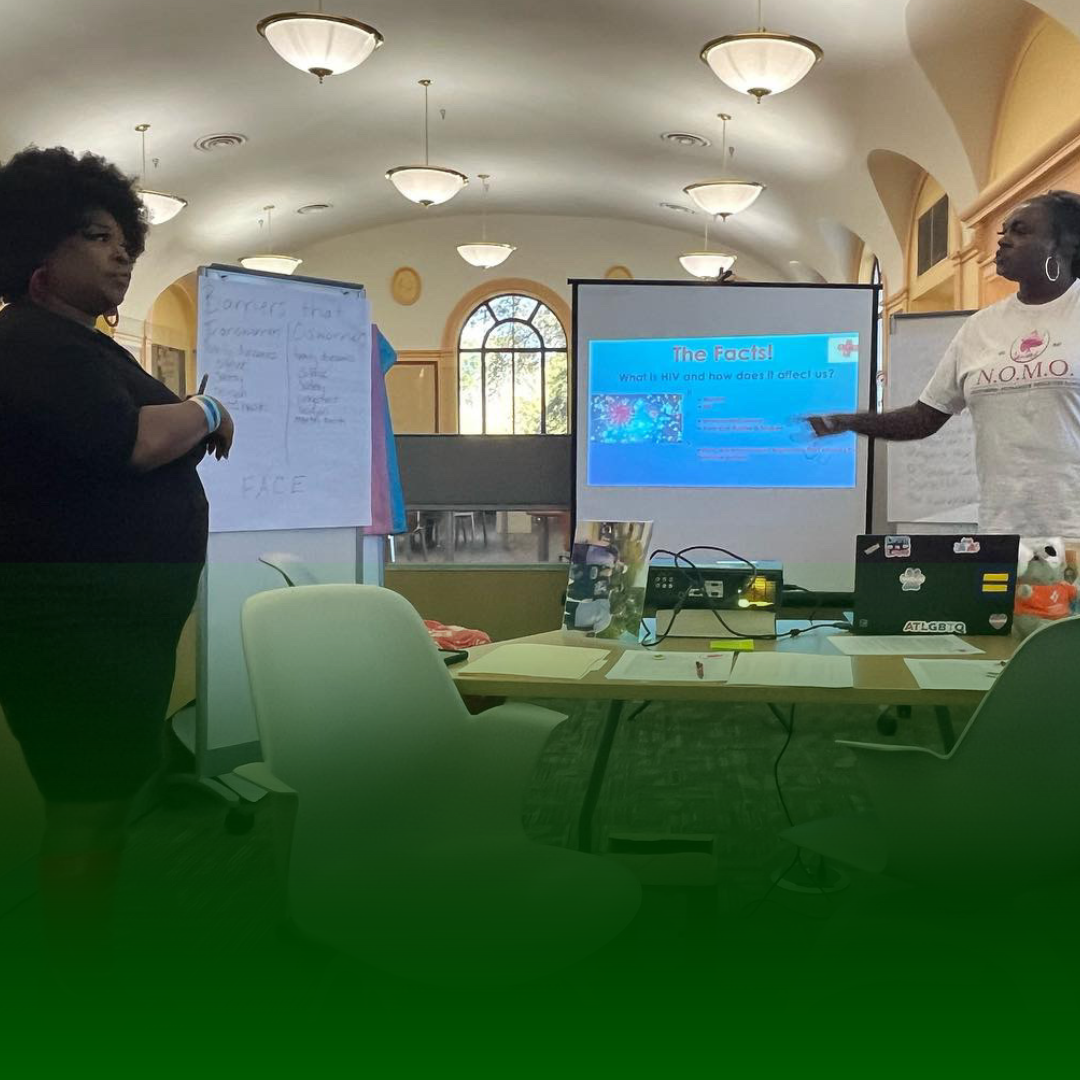Menu
WELCOME TO our blog |
|
If you would like to be a 2024 Guest Contributor, send your article less than 700 words to [email protected]. Focus areas include: mental health, physical health, financial wellness, self-care, stress management for black women. Word document or PDF only. Subject to approval by Editor.
Zaria Newbill, BAExecutive Director/Founder N.O.M.O. Organization
Through her advocacy and relentless efforts bringing awareness about HIV and transgender rights, this has been pivotal to her advocacy. Zaria started the NOMO Organization back in 2017 with just a vision of supporting her community through Peer Support Groups. NOMO stands for Navigating Omitted Minds Overtime. Through her advocacy and years of standing up against any and all anti-transgender bills and community work has landed her to be recognized as a voice for those who have remained in the shadows of fear, stigma and discrimination. The NOMO Organization created the Melanated Women’s Empowerment Program to effectively create a safe space for black and brown women to discuss matters that disproportionately impacts black and brown communities at an alarming rate. This program seeks to be one of many valuable programs to help bring an awareness about HIV Intervention, preventions and treatments. HIV education and prevention efforts have come a long way since the early days of the epidemic. However, despite advancements in treatment and prevention, certain communities continue to face disproportionate rates of HIV infection and health disparities. One such community is Black and Brown trans and cis women living in rural Georgia. These women face unique challenges when it comes to accessing sexual health education and resources, leading to higher rates of HIV infection and other health issues. In response to this issue, the NOMO Organization created the “Melanated Women’s Empowerment Program” for HIV education and prevention specifically tailored to the needs of black and brown trans and cisgender communities. In this article, we'll explore the barriers faced by Black and Brown trans and cis women in rural Georgia and how NOMO is breaking them down. The Health Disparities Faced by Black and Brown Trans and Cis Women
This lack of education can lead to a lack of knowledge about HIV prevention methods, such as PrEP (pre-exposure prophylaxis) and PEP (post-exposure prophylaxis), as well as a lack of understanding about the importance of regular HIV testing. Stigma and Discrimination Stigma and discrimination against LGBTQ+ individuals, particularly in rural areas, can also contribute to health disparities. Many Black and Brown trans and cis women may feel uncomfortable seeking sexual health resources or discussing their sexual health with healthcare providers due to fear of discrimination or judgment. In particular for transgender women when they have the biggest war to fight in this HIV stigma and discrimination conversation. Many fear of going to any doctor or public health location for being dead named misgendered, ID’s and other legal documents not matching the gender of how they are presently living. This barrier is significant because it will continue to be a direct reason why HIV will continue to increase. This can lead to delays in seeking care and a lack of access to important resources, such as HIV testing and treatment. Lack of Representation in Healthcare Another barrier faced by this community is the lack of representation in healthcare. Many healthcare providers may not have experience or training in providing care to LGBTQ+ individuals, leading to a lack of understanding and sensitivity towards their unique needs. This can result in a lack of access to culturally competent care and a reluctance to seek healthcare services. The NOMO Organization's Revolutionary Approach Community-Based Education and Outreach
The NOMO Organization takes a community-based approach to HIV education and prevention. This means that they work directly with members of the community to provide education and resources. This is why the “Melanated Women’s Empowerment Program” was created. Not only is the focus solely on HIV Education, but we also discuss mental health, spiritual health and other health inequities and barriers that these women are facing living in rural Georgia. Through partnerships with the NOMO Organization is able to reach Black and Brown trans and cis women in rural Georgia who may not have access to traditional sexual health education programs. The diversity of this group makes up college students, married women, single women, lesbians, and heterosexual women. Culturally Humility Care NOMO also prioritizes providing culturally humility care to this community. This means that they take into account the unique needs and experiences of Black and Brown trans and cis women when providing education and resources. These resources are mental health counseling and also safe and equitable locations for the women in this group to attend. By working with healthcare providers who have experience and training in providing care to LGBTQ+ individuals, NOMO is able to ensure that their clients receive the best possible care. Making sure to partner with local agencies that have had TGNC sensitivity training is vital for the decrease in HIV diagnosis and getting women into care. Whether it is for treatment or interventions. Empowerment and Advocacy In addition to education and resources, NOMO also focuses on empowering and advocating for Black and Brown trans and cis women in rural Georgia. This includes providing support and resources for self-advocacy, as well as advocating for policy changes that will improve the health and well-being of this community. Demonstrating what to ask for when going to their healthcare providers is important because it will show their doctors that they are taking the lead with their sexual health and making sure they are getting the correct information to be healthy not only for themselves but for their families. These women are also tasked with the urgency to bring other women to this program that will empower and encourage them to not be afraid to discuss HIV and the realness of this manageable disease. Once they have completed the 9 months of HIV education they will be considered advocates for their peers. NOMO's approach has already had a significant impact on the health and well-being of Black and Brown trans and cis women in rural Georgia. By providing education and resources tailored to the needs of this community, NOMO has helped to reduce rates of HIV infection and improve overall sexual health. NOMO has done this by getting volunteers and staff trained on HIV testing and educating on self-test kits. HIV Self-Test kits are kits people can do in the privacy of their home. It is completely safe and instructions are clear and concise. How You Can Support NOMO's Mission If you want to support NOMO's mission and help break down barriers for Black and Brown trans and cis women in rural Georgia, there are several ways you can get involved:
The NOMO Organization's revolutionary approach to HIV education and prevention for Black and Brown trans and cis women in rural Georgia is making a real difference in the lives of this community. By addressing the unique barriers faced by this population and providing culturally competent care, NOMO is helping to reduce health disparities and improve overall sexual health. If you want to support NOMO's mission and help break down barriers for this community, consider donating, volunteering, or spreading the word about their important work. Together, we can make a difference and create a more equitable and inclusive healthcare system for all. www.nomoorganization.org/
1 Comment
Sandra Newbill
4/1/2024 12:29:13 pm
I'm so proud of Zaria Newbill for her relentless efforts in pursuing her vision to be an advocate and a voice for her community. Please donate to her organization it is helping so many people in the LGBT Community and beyond. You're a true Visionary!
Reply
Your comment will be posted after it is approved.
Leave a Reply. |
Healing Black Womenis a safe space designed to encourage and promote all forms of wellness and healing for black women. Category
All
|
The content for Healing Black Women is not intended to be a substitute for professional medical advice, diagnosis, or treatment, and does not constitute medical or other professional advice. In addition, the views and opinions expressed in panel discussions are those of the panelists and do not necessarily reflect the official policy or position of Healing Black Women, Healing Black Women's Founder, or Healing Black Women's Contributors. See full disclaimer HERE
Site powered by CD GLOBAL CONTRACTING LLC




